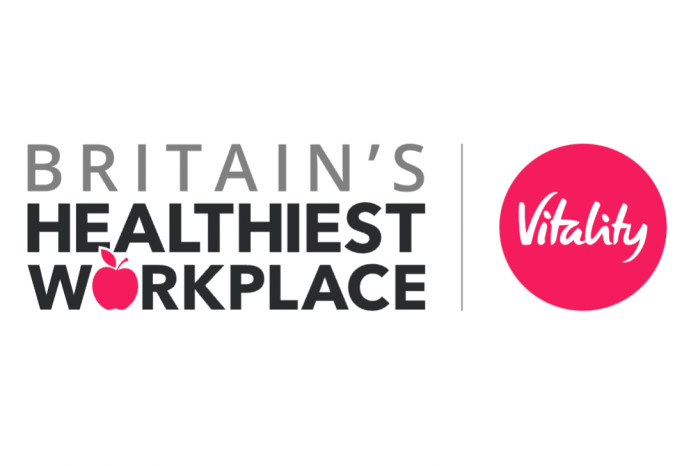The return of the in-office doctor

Simply sign up to the Work & Careers myFT Digest -- delivered directly to your inbox.
When a junior banker working late for Goldman Sachs collapsed in 2016, management told staff at the investment bank to look after their health more seriously. At the time, some employees were furious that the response did not address the pressured work culture they believed may have led to the incident, which came three years after a Bank of America intern died from an epileptic fit after working through the night.
But Goldman is one of several companies — including fellow bank Morgan Stanley, and tech giants Google and Meta — that has long had doctors and nurses available on-site at their UK offices, in a bid to show their commitment to employee health and wellbeing.
At Goldman’s City of London headquarters, opened in 2019, a purpose-built medical centre provides services ranging from doctors to osteopaths and psychiatrists. Employees say they can pop downstairs for any healthcare need — from treatment for a twisted ankle to a full check-up. Other services offered include fertility treatment and flu jabs.
“It’s now common practice,” says a spokesperson for Goldman, who notes that in-house medical care has been available to staff since 2009. “It’s more part of employee wellness strategy to attract and retain and look after staff,” he says.
He declines to comment on any other steps taken in response to what happened in 2016. “[I’m] afraid I can’t speak to this particular incident but there have been numerous policies implemented over the years to address the issue of junior banker working hours.”

At JPMorgan Chase, employees appreciate the on-site heathcare. “We have in-house doctors and nurses depending on the size of the office, as well as on-site counsellors,” says one asset manager. “I’ve used them and they’ve been fantastic — makes life a lot easier. I don’t see these benefits as being the main reason that I’m loyal to the company, but they definitely help.”
This approach to workplace health emerged in the US in the 1980s, against a backdrop of rising healthcare costs and several health scandals. Industry giants — such as razor brand Gillette, power company Southern California Edison, and tyremaker Goodyear Tire and Rubber — hired in-house doctors to ensure the health and productivity of employees.
In the US, having doctors on staff was deemed a business efficiency. “As salaried employees of the company or its subsidiary, these physicians would have no financial incentive to provide unnecessary, ineffective, or redundant healthcare,” a staff-benefits consulting firm told the New York Times in 1989.
In the UK, the situation differs, given the availability of state healthcare. According to Mark Dayan, a policy analyst at the Nuffield Trust healthcare think-tank, “it’s not the case that companies nowadays are providing their employees more healthcare than the NHS is”.
Sign up for Britain’s Healthiest Workplace

Help your employees get happier, healthier and more productive. Any organisation in the UK with 20 or more employees can take part. Click here to sign up now.
But there are signs that the UK is heading in that direction. Morgan Stanley, which has a similar in-office medical centre to Goldman, offered its own on-site coronavirus testing during the pandemic.
“It isn’t too difficult to set up a private general practitioner inside an office,” says Dayan. “There are no regulatory reasons they can’t do it. But it would be a huge financial investment for a company.” Private GP salaries in the UK start at £90,000 a year, according to Leeds-based healthtech recruiter Menlo Park.
GPs in the UK are trained in the NHS system, have to be registered with the General Medical Council, and their practices are regulated by the Care Quality Commission. Individual GPs, or a group, can set up a practice.
Most employees at companies will still be registered with their home GP, but there is an advantage to having a doctor physically in the office, especially if you don’t live near work, says Dayan.
However, given the expense and procedures associated with hiring in-house doctors, most large UK companies still prefer to offer private health insurance. International law firm Sidley Austin gives employees at its London office access to private GPs and does “not feel it necessary to bring these services in-house”, given there are many private clinics nearby, points out Lyndsey Laverack, a partner at the firm.
Laverack has seen a noticeable increase in the uptake of the company’s healthcare benefits over the past few years, particularly since Covid. “The current economic climate has exacerbated the need to make such resources available, as people often struggle to book appointments through the NHS or to fund private treatment,” she says.
Organisations are able to contribute a nominal monthly sum to provide their employees with to access healthcare providers such as Bupa, Aviva, Vitality or Axa. Accounting firm Deloitte, and the banks Barclays and Société Générale, are among the UK-based businesses taking this option. Services can also include 24-hour digital GP appointments, via a specialist online healthcare company, such as Square Health.
Parth Patel, a senior researcher specialising in health at the Institute for Public Policy Research think-tank, says this could be viewed as “another symptom of the growing two-tier healthcare system in the UK” — in which those who can afford it pay for private healthcare, while others have to rely on the NHS.
“The dissatisfaction with NHS services is leading to a new institutional arrangement of how people access healthcare. It is likely this will widen health inequalities,” he says.
Some employees at blue-chip companies believe bypassing the NHS system makes sense.
“Private healthcare is a huge incentive to work for my employer as the NHS was never helpful to me in any way,” says one consultant for Deloitte. This costs “as little as £200 per year, depending on my work. Wait times for procedures are minimal. They cover most health problems.”
Not all employees are convinced that the offers are benevolent, however. One Goldman Sachs relationship manager suggests the company may have implemented the measure to minimise employee time away from the office: “Maybe they don’t want to allow people to use the excuse ‘just going to see the doctor’ when we interview for other firms.”
Likewise, a broker at Société Générale says: “These days, private healthcare is standard among banks, not as a wooing tactic per se but as a way to keep up, competitively. Obviously, it reduces time away from work: they want to keep us healthy and present at our desks.”

Comments